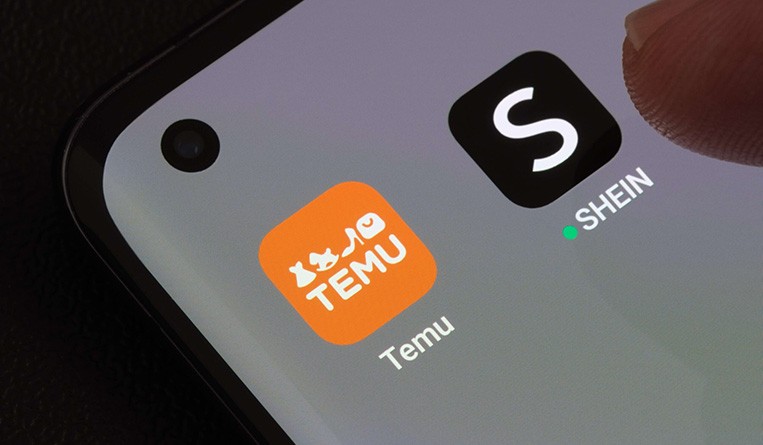On August 19, 2024, ecommerce giant Shein filed a lawsuit against its Chinese rival Temu, accusing the latter of stealing its designs and copying its product images, among others. The lawsuit, submitted in the United States District Court for the District of Columbia, alleged Temu was unlawfully “built on counterfeiting, theft of trade secrets, infringement of intellectual property rights and fraud.”
Shein and Temu are known for their wide variety of inexpensive, trendy products. Founded as ZZKKO in 2008, Shein started from a drop-shipping model sourcing products from the wholesale clothing market in Guangzhou. However, after establishing its own supply chain system in 2012, the company has become one of the world’s most popular online fashion retailers, particularly among Generation Z consumers.
Unlike Shein, Temu operates as an online marketplace instead of a direct retailer, connecting independent sellers who list their products on the platform for sale. However, Shein believes Temu only “masquerades” as such, as Temu controls all aspects of its sellers’ operation. This includes creating, designing and pricing the infringing products sold on its platform. Shein even goes as far as saying Temu “encourages” sellers to infringe IP rights. At least one Temu employee stole “valuable trade secrets,” including information on top-selling Shein products and internal pricing, to help compete against its closest competitor.
“Temu does not merely tolerate infringement on its platform; Temu directs it,” wrote Shein’s lawyers in the lawsuit. “Temu is Pinduoduo with a new name.” Pinduoduo, Temu’s sister website launched by the same company PDD Holdings in 2015, has long been known for selling counterfeits and has been on the “notorious markets” list of the U.S. Trade Representative for piracy and counterfeiting since 2019.
Beyond infringement, Shein also accused Temu of using deceptive tactics to divert Shein consumers to its own platform through misleading ads and false social media claims. The 80-page lawsuit included dozens of examples of clothes and designs that Temu allegedly ripped off, as well as a screenshot of a Temu-sponsored Google ad with Shein in the headline but with Temu’s web address.
Through these practices, according to Shein, Temu has gained an unfair and illegal foothold in the market within just two years of launching. However, Shein isn’t without its own series of allegations piling up its door. For years, the company has been involved in controversies over its labour practices, supply chain issues and a pattern of copying items from small businesses.
Last year, three independent designers served Shein a lawsuit for selling “exact copies” of their work. Shein’s copyright infringement was so severe that it amounted to “racketeering,” which is making money from illegal activities, and an accusation of violating the U.S. Racketeer Influenced and Corrupt Organizations (RICO) Act. The act, initially designed to combat organized crime, also allows for civil action against racketeering, which includes specific acts related to criminal copyright infringement.
The same year, three graphic designers in China sued Shein for copyright infringement, accusing the ecommerce giant of using electronic monitoring and artificial intelligence (AI) to track online consumer behaviour. Allegedly, monitoring social media platforms has allowed Shein to mass-produce copied designs. Small business owners have long spoken out against the company’s infringement, but the complexities of the fashion industry’s copyright law have made it challenging to pursue legal action.
Several big brands, including H&M, Uniqlo, Levi Strauss, Ralph Lauren and Oakley, have also sued the ecommerce giant in various forms of IP infringement. Currently, Shein is facing a class-action lawsuit claiming that the company is guilty of an “industrial scale scheme of systematic, digital copyright infringement of the work of small designers and artists.”
Following Shein’s recent lawsuit, Temu responded by dismissing all accusations as hypocritical. “Shein, buried under its own mountain of IP lawsuits, has the nerve to fabricate accusations against others for the very misconduct they’re repeatedly sued for,” said a Temu representative.
This isn’t the first time the two companies clashed in court. Temu previously accused Shein of bullying manufacturers to stop them from working in the marketplace. In a separate case, Shein claimed that Temu instructed influencers to spread “false and deceptive statements” about Shein while promoting Temu. Both lawsuits were dropped in October 2023. In December 2023, Temu sued Shein again, this time for “mafia-style intimidation of suppliers” to hamper its growth in the U.S., allegedly detaining merchants and stealing business secrets.
Currently, Temu is facing two ongoing class-action lawsuits. A coalition of 21 state attorneys general recently united to demand answers from Temu regarding its alleged ties to the Chinese Communist Party (CCP), data collection and sharing practices, and more. The other lawsuit accuses the company of making false statements about collecting user data without consent and selling banned items.
- Kristin Jerome Reyna







